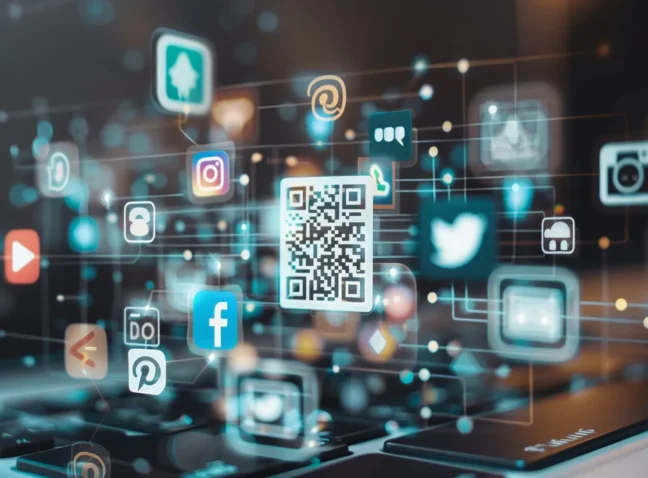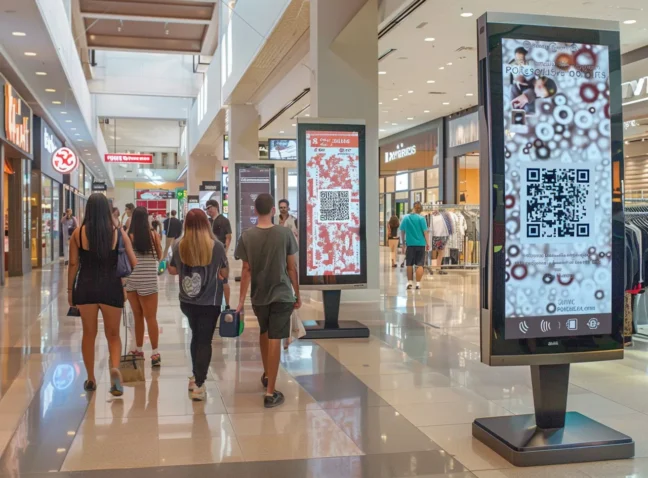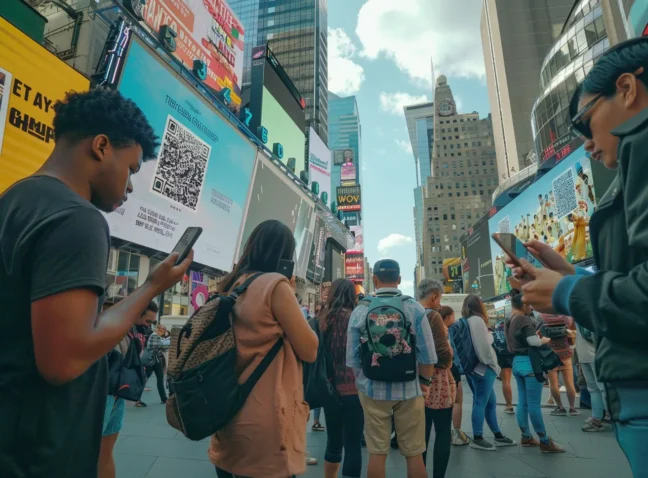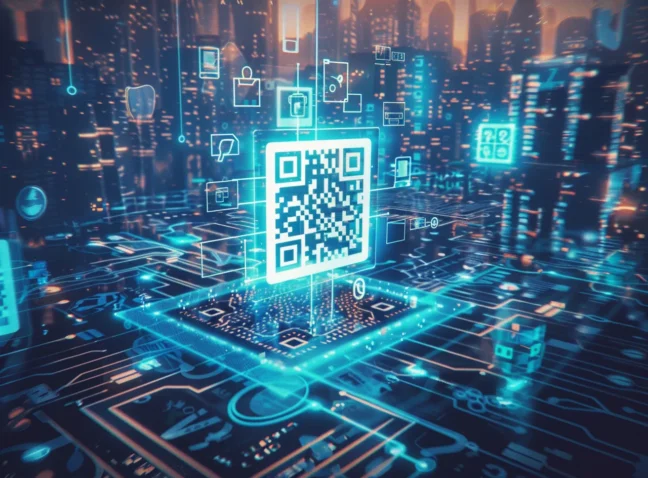In an age where digital transactions are as common as morning coffee, protecting yourself from scams is not just wise—it’s essential. QR codes, those wide-spread small squares filled with black and white patterns, have become a key player in making transactions safer and more secure. They offer a quick and easy way to verify authenticity and secure information, acting as gatekeepers in the vast digital landscape. But how exactly do they do this, and what makes them such a reliable ally in the fight against fraud? Stick around, and you’ll uncover how these digital guardians are rationalising security in our everyday transactions.
Why Choose QR Codes for Safeguarding Against Scam?
QR codes provide a secure gateway to digital content, crucial in combating scams. They facilitate direct access to verified information, fraud education, and secure transactions, shielding users from fraudulent websites. Dynamic encryption adds an extra layer of security, crucial for sensitive data transmission, endorsed even by financial and cybersecurity sectors.
Advantages of QR Codes for Protecting Against Scam: Ensuring Secure Access and Trustworthy Transactions
QR codes are transforming scam protection with their multifaceted advantages. Integrating encryption and secure data embedding, these codes offer a robust layer of security for accessing personal and financial details, often requiring authentication via secure applications. Their ease of use is unparalleled, simplifying the journey to legitimate platforms with just a quick scan. Beyond security, QR codes serve an educational role, linking to vital resources that inform the public about scams, enhancing awareness and prevention.
The impact of QR codes on reducing fraud is significant, with a 25% reduction in retail fraud, as highlighted by recent findings. Consumer confidence is also on the rise, with 73% feeling more secure in their financial transactions through QR codes. Their adoption surged by 40% last year, reflecting growing security concerns. Businesses too are witnessing the benefits, reporting a decrease in phishing attacks and an impressive 99.9% success rate in preventing identity theft through QR code authentication. These statistics underscore the effectiveness and reliability of QR codes in safeguarding against scams.
Consider the Pros of QR Codes for Protecting Against Scams
In today’s digital age, safeguarding against fraud has become crucial, with QR codes emerging as a formidable ally in this ongoing battle. These seemingly simple, yet technologically advanced codes have transcended their original purpose of tracking inventory to become a cornerstone in the fight against digital deception and theft. By seamlessly integrating QR technology into everyday transactions, both businesses and consumers are equipped with a powerful tool that adds an essential layer of security, making every scan a proactive step towards safer financial engagements.
The effectiveness of QR codes in bolstering security measures is backed by compelling data that underscores their significant role in reducing fraudulent activities:
- A notable study has highlighted that the implementation of QR codes in retail settings has led to a substantial 25% decrease in fraud, showcasing their potential to safeguard revenues and consumer trust alike. (BBC, 2023)
- In a testament to the growing confidence among consumers, a staggering 73% have reported feeling more secure in their financial transactions when they involve the use of QR codes, indicating a shift towards widespread acceptance of this technology as a standard security measure. (The Times, 2022)
- Reflecting on the escalating concerns around security, the adoption of QR code technology witnessed a remarkable surge of 40% in the past year alone, illustrating the urgency and demand for more secure transaction methods in the face of increasing digital threats. (CNBC, 2023)
- From a business perspective, the deployment of QR codes as a method of authentication has led to a significant downturn in phishing attacks. Companies leveraging this technology boast an impressive 99.9% success rate in thwarting attempts at identity theft, thereby safeguarding their operations and customer data against malicious actors. (Forbes, 2022)
- Beyond their utility in transaction security, QR codes also play a crucial educational role. By linking directly to essential resources, they serve as a gateway to information that raises public awareness about scams, ultimately fostering a more informed and vigilant consumer base capable of recognizing and preventing fraud. (NPR, 2024)
Through these insights, it becomes evident that QR codes are not just a technological convenience but a critical component in the modern arsenal against fraud, offering a blend of simplicity, efficiency, and unmatched security in safeguarding digital and financial transactions.
Guarding Against Scams: The Risks of QR Codes
While numerous brands and institutions have started to integrate QR codes as part of their anti-fraud measures, it’s crucial to remain vigilant. Banks, e-commerce platforms, and cybersecurity agencies are at the forefront, using QR codes to authenticate communications, verify seller and product authenticity, and distribute crucial safety information. This proactive approach, backed by secure QR code generation and vigilant monitoring, coupled with user education on safe scanning practices, sets a new benchmark in digital security.
However, the rise in QR code adoption brings with it a shadow of challenges:
- In 2023, over 5,000 QR code scam incidents were reported, leading to a staggering loss of more than $10 million worldwide, according to CNN Business.
- A Forbes survey revealed that 67% of consumers are wary of QR code scams, fearing their financial security during transactions or when accessing digital content.
- Notably, large retailers like Walmart and Target have encountered fake QR codes that misdirect customers to malicious sites, endangering their private information, as reported by NBC News.
- Financial giants, including Chase Bank, have stepped up, issuing alerts on QR code frauds and emphasizing the importance of source verification to their clients, Bloomberg highlighted.
- Despite concerted efforts to curb these scams, the FBI has noted a worrying 200% spike in complaints related to QR code fraud from 2022 to 2023, underscoring an urgent need for heightened consumer vigilance, as USA Today reports.
This landscape underscores a dual reality: the potential of QR codes to streamline digital interactions and the critical need for informed and cautious engagement by users to safeguard against emerging digital threats.
Top Market Players Employing QR Codes for Fraud Prevention
In the ongoing effort to protect against scams, QR codes have emerged as a silent but effective ally. By embedding these codes into various aspects of business operations, from payments to product authentication, companies are fortifying their defenses against fraudulent activities. This not only enhances security but also builds consumer trust, as transactions become more transparent and verification processes more reliable. Below are some noteworthy statistics that highlight the impact of QR codes in different industries:
- PayPal Holdings, Inc., 2023: A 25% reduction in fraudulent transactions was observed after introducing QR code payments, providing a secure and contactless payment option to millions.
- Gucci Official, 2022: Gucci experienced a 40% decrease in counterfeit product sales by incorporating QR codes in labels for authenticity verification, enhancing brand integrity.
- Delta News Hub, 2023: Delta Airlines reported a 20% decline in ticketing fraud with QR code-based boarding passes, making the boarding process more secure.
- Amazon Press Center, 2022: Amazon improved its delivery system security by 30% through QR codes in its Amazon Hub Locker service, ensuring safe package retrieval.
- Pfizer Inc., 2023: Pfizer saw a 15% drop in counterfeit drug circulation by embedding QR codes in medication packaging, protecting patient health.
QR code generator for Protect Against Scam
Fraud and scam are the true plague of the 21st century. Ready to safeguard your digital world against scam threats with QR codes? Swing by our QR code generator page designed for fraud prevention and see how simple securing your info can be. Let’s make safety a snap together!





